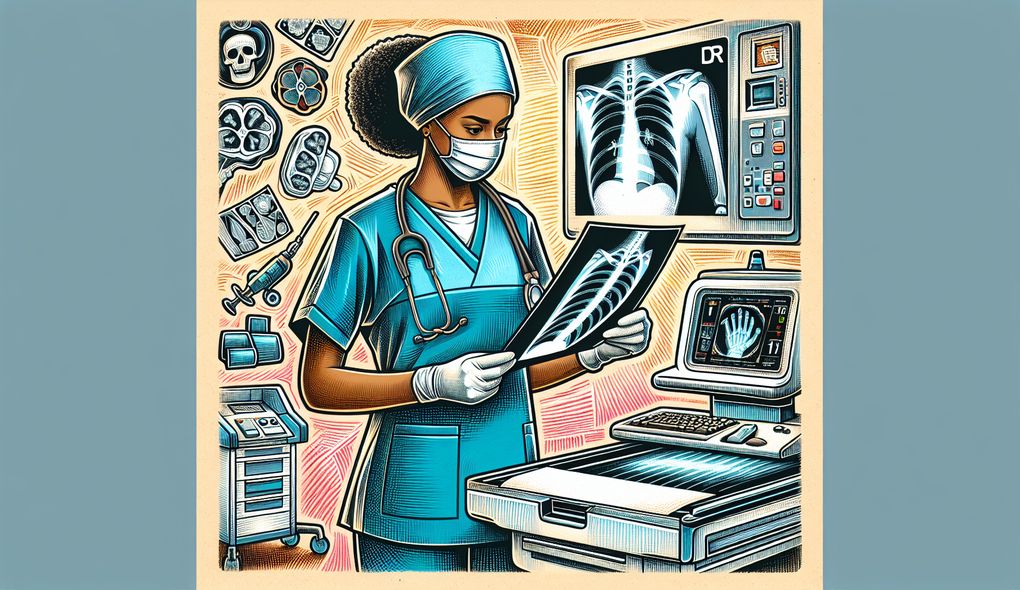What strategies do you use to problem-solve and think critically in a fast-paced and high-pressure healthcare setting?
JUNIOR LEVEL

Sample answer to the question:
In a fast-paced and high-pressure healthcare setting, I rely on several strategies to problem-solve and think critically. First, I prioritize tasks based on urgency and importance, ensuring that I address the most critical issues first. I also gather as much information as possible to fully understand the problem at hand. This may involve consulting with other healthcare professionals, reviewing medical records, or conducting research. Once I have a clear understanding of the problem, I brainstorm possible solutions, considering both immediate and long-term implications. I then evaluate each solution based on its feasibility, safety, and potential outcomes. Finally, I make a decision and take action, communicating my plan to the necessary team members and adjusting as needed. Throughout this process, I remain calm and focused, utilizing my critical-thinking skills and drawing on my knowledge and experience in the healthcare field.
Here is a more solid answer:
In a fast-paced and high-pressure healthcare setting, my problem-solving and critical-thinking skills come into play. I begin by assessing the situation and identifying the problem or challenge at hand. This involves gathering information from various sources, such as medical records, consulting with other healthcare professionals, and conducting research if necessary. Once I have a clear understanding of the problem, I prioritize tasks based on urgency and importance. Then, I generate multiple potential solutions, considering both immediate and long-term implications. To make an informed decision, I evaluate each solution based on its feasibility, safety, and potential outcomes. In situations where time is limited, I rely on my experience and knowledge to quickly generate potential solutions. I also consider the input of other team members, as collaboration often leads to more effective problem-solving. After selecting the most appropriate solution, I take action, communicating my plan to the necessary team members and adjusting as needed. Throughout this process, I remain calm and focused, utilizing my critical-thinking skills and drawing on my knowledge and experience in the healthcare field. During high-pressure situations, I prioritize the safety of the patient and communicate effectively with the healthcare team to ensure seamless coordination and efficient problem-solving.
Why is this a more solid answer?
The solid answer provides a more comprehensive explanation of the candidate's strategies for problem-solving and critical thinking in a fast-paced and high-pressure healthcare setting. It includes specific details and examples to support their claims, such as gathering information from medical records and consulting with other healthcare professionals. It also addresses how they handle pressure and stress in such situations. However, it could still benefit from further elaboration on how they prioritize tasks and the specific steps they take in evaluating potential solutions.
An example of a exceptional answer:
Problem-solving and critical thinking are essential skills in a fast-paced and high-pressure healthcare setting. When faced with challenges, I follow a systematic approach to ensure effective resolution. Firstly, I assess the situation by gathering relevant information from various sources, such as medical records, patient history, and consultations with healthcare professionals. This comprehensive understanding allows me to identify the root cause of the problem. Once the problem is defined, I prioritize tasks based on urgency and impact on patient care. To generate potential solutions, I employ both analytical and creative thinking. I evaluate each solution by considering its feasibility, safety, and potential outcomes, ensuring alignment with best practices and industry guidelines. Collaboration with the healthcare team provides a valuable opportunity to leverage diverse perspectives and expertise. Although time constraints may exist, I maintain a calm and composed demeanor, focusing on delivering the highest standard of care. In situations requiring immediate action, I rely on my clinical experience, knowledge, and intuition to make informed decisions. Efficient communication with the team is crucial to facilitate seamless coordination and ensure the successful implementation of the chosen solution. Additionally, I continuously adapt and learn from each experience, enabling me to enhance my problem-solving and critical-thinking skills and refine my approach in future situations.
Why is this an exceptional answer?
The exceptional answer provides a thorough and well-organized response to the question. It demonstrates a systematic approach to problem-solving and critical thinking in a fast-paced and high-pressure healthcare setting. The candidate clearly outlines the steps they take, from assessing the situation to prioritizing tasks and evaluating potential solutions. They emphasize the importance of collaborating with the healthcare team and maintaining a composed demeanor in high-pressure situations. Additionally, they highlight the value of continuous learning and adaptation to further enhance their problem-solving and critical-thinking skills. This answer exceeds the requirements of the job description and showcases the candidate's expertise in the field.
How to prepare for this question:
- Familiarize yourself with common challenges and situations that arise in a fast-paced and high-pressure healthcare setting, such as emergency situations, time-sensitive procedures, and critical patient conditions.
- Stay up to date with industry guidelines and best practices related to radiology nursing, as this will provide a solid foundation for problem-solving and critical thinking.
- Practice applying your problem-solving and critical-thinking skills in a healthcare setting. This can be done through role-playing scenarios or seeking opportunities to contribute to problem-solving initiatives in your current role.
- Develop effective communication and collaboration skills, as these are essential when working in a fast-paced and high-pressure healthcare environment. Seek feedback from colleagues or participate in communication workshops to enhance these skills.
- Reflect on past experiences where you successfully problem-solved and used critical thinking in high-pressure situations. Prepare specific examples to demonstrate your abilities during the interview.
What are interviewers evaluating with this question?
- Critical-thinking skills
- Problem-solving skills

